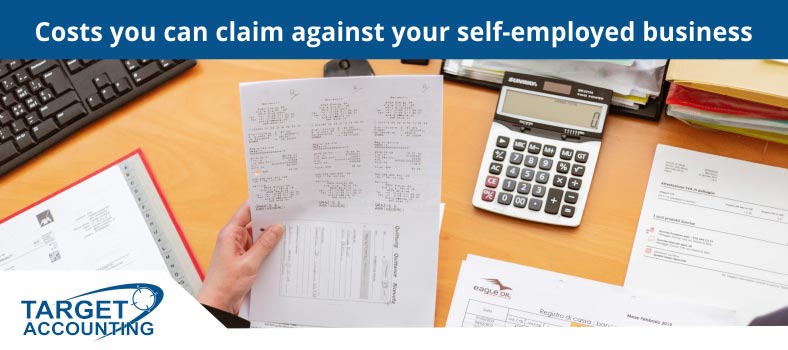The most obvious part of completing your tax return after the end of each fiscal year is working out your expenses. This is because some expenses are tax-deductible, and you can subtract them from your turnover in order to get some taxable profit. But, what are these allowable expenses if you are a self-employed individual? Let us find out!
What Are Allowable Expenses?
The first step to filing your tax refund is to understand the allowable expenses that you can claim as a self-employed individual. HMRC has provided clear rules about what can and cannot be included as self-employed expenses. In this regard, the costs that you are allowed to include in your overall calculation for the turnover of a specific year are known as allowable expenses.
HMRC has defined these allowable expenses clearly so that self-employed people can ensure only the deduction of expenses that are related to their business. It is essential to have clarity on the self-employed expenses of your business that are allowable.
This will further help in calculating the profit accurately so that you can pay the right tax amount at the end of each year. For instance, if you have earned a total of £30,000 in a specific taxation year and your allowable expenses are £7,000, you will only be required to pay tax on a total of £23,000. This will be your taxable profit.
Which Self-Employed Expenses can be Counted as Allowable Expenses?
If you are a self-employed individual, you can consider the following expenses as allowable when completing your tax return:
Office Expenses
Things like business stationery, postage, and printing costs can be included in office expenses. You can also add any equipment used for business purposes such as a printer, computer, and any software you might need. That said, if you do not use cash-basis accounting, you will have to claim these expenses as capital allowances.
Travel
You can also include business-related travel costs such as vehicle insurance, hire charges, fuel, servicing, breakdown cover, repairs, and other related costs. In order to make the calculations of these expenses easier, you can make use of “simplified vehicle expenses.” This is a flat rate offered by the government.
Remember that although you can include travel costs for site visits and meetings, you cannot claim the costs of commuting to business premises. Similarly, you cannot claim for entertaining suppliers, customers, or clients or event hospitality for that matter.
Business Premises
Business premises include expenses such as maintenance and repair, property insurance, security, rent, and utility bills. You can claim all these expenses, but you cannot claim the amount you spent on building or buying your business premises as an expense.
Financial And Legal Costs
Allowable expenses also include financial and legal costs that are directly related to your revenue generation, such as if you need to hire professionals like solicitors, architects, surveyors, or accountants for business purposes. This also includes overdraft, credit card, and bank charges, as well as interest in business and bank loans.
Stock And Material
The cost of your raw material and stock can also be included in your allowable expenses.
Marketing
If you have spent money on marketing such as directory listings, newspaper advertising, free samples, and mailshots, you can claim them all.
Business Insurance
Business insurance, such as professional indemnity insurance, public liability insurance and employer’s liability insurance can also be claimed in your tax return.
Staff Costs
Allowable expenses also include staff and employee salaries. In the same vein, you can count bonuses, benefits, pension contributions, employer national insurance contributions, and agency fees when filing your tax return.
Clothing
This covers the cost of uniforms or any necessary protective clothing that you might have to buy for business reasons. However, you cannot claim the everyday clothing cost that you usually wear to work.
Subscriptions
This includes membership costs for professional membership organisations or trade bodies if these expenses are relevant to your business. The cost of subscriptions for professional journals and trade is also included in allowable expenses.
Use Of Home, Telephone, Broadband/Internet
Most freelancers tend to work out of their homes, and if you are a self-employed freelancer, you can easily deduct your mortgage, including the property taxes and the rent that you pay for your home office. Similarly, you can also claim utility costs such as telephone bills and broadband/internet expenses.
Need Any Help?
Irrespective of whether you need more information regarding allowable and ta-deductible expenses if you are a self-employed individual or you are on the lookout for self-employed insurance, Target Accounting can help you out! Also Read more about Ultimate Business Tips for the Self-Employed
With our help, you can easily build a self-employed insurance policy or take care of your tax refunds in a straightforward and hassle-free manner. We are an accountancy firm with years of experience under our belt. In addition to that, we have a team of experts who can take care of all your queries and problems related to the financial part of your business.


